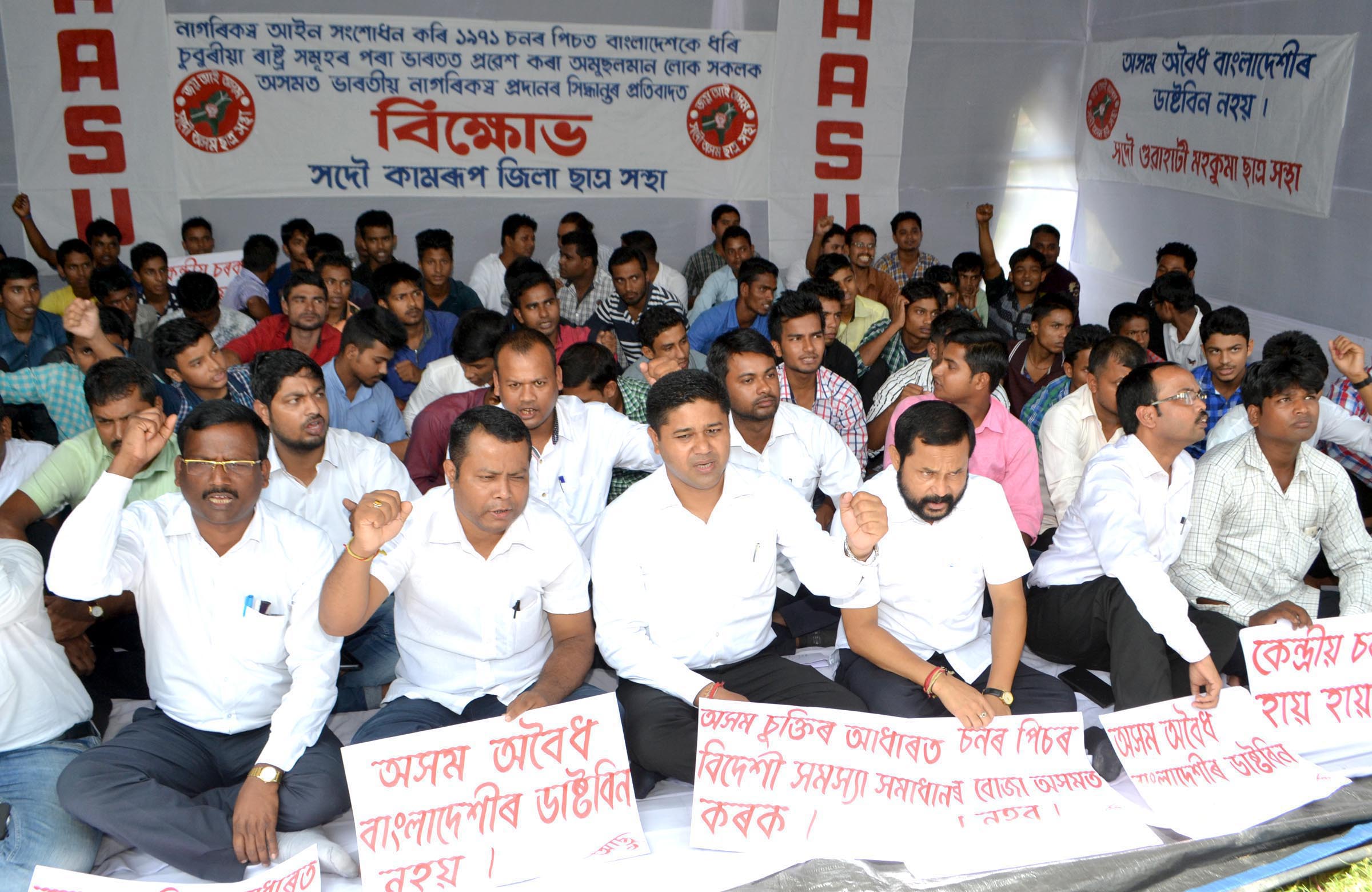Assam Groups Protest Centre's Citizenship Rights Bill For Bangladesh Minorities

GUWAHATI: The central government’s decision to grant citizenship to non-Muslims from the neighbouring countries through the Citizenship (Amendment) Bill, 2016 has irked students’ organizations, literary bodies, political leaders and others l in Assam.
The Citizenship (Amendment) Bill, 2016, which was tabled in Parliament on August 11, seeks to give citizenship to religious minorities from Bangladesh, Pakistan and Afghanistan in India. The bill, however, was referred to a Parliamentary panel, following which the opposition said the bill needed more scrutiny.
All Assam Students’ Union (AASU), an influential students’ organization and one of the signatories of Assam Accord, strongly opposed the bill. AASU chief advisor Samujjal Bhattacharyya said that this bill is against the people of Assam.
“We will not let it happen at any cost. We are already plagued by the problem of illegal infiltrators from Bangladesh. We have been fighting to get rid of this problem for a long time and this bill will put us in more trouble. Religion cannot make an illegal infiltrator a citizen,” said Bhattacharyya.
The Assam Accord was signed following a long agitation of six years in 1985.
According to the accord, whoever irrespective of their religion, caste and creed has entered the country after March 25 of 1971 is an illegal citizen.
AASU has already carried out a series of protests opposing the bill in several parts of the state. “We will continue to stage our opposition. This is the most impractical thing,” Bhattacharyya added.
Krishak Mukti Sangram Samiti (KMSS), a powerful peasants’ body, has also opposed the bill and slammed the BJP government for adding communal colour in the issue.
KMSS advisor Akhil Gogoi, who was also a member of Anna Hazare team, said that Assam will face a cultural and linguistic crisis if the bill is passed.
“This is extremely unfortunate and we condemn the centre. We are not against any religion but if the Bangladeshi people are allowed to stay here, the people here will face lot of problem culturally and language wise. We warn the central government not to go ahead with it,” Gogoi said.
A few members of KMSS also staged hunger strike in Guwahati opposing the bill. “Assam being a bordering state, we are the most vulnerable to the illegal citizens,” Gogoi added.
Former Assam chief minister Prafulla Kumar Mahanta, who was also a signatory of Assam Accord as president of AASU, said that Assam cannot be a dumping ground for the migrants.
“Even if the centre decides to give shelter to these victims of religious persecution in the neighbouring countries on humanitarian ground, they should be given refugee status as per international law. Assam should never be the dumping ground for migrants,” Mahanta said.
Asam Sahitya Sabha (ASS), the apex literary body of Assam, has also voiced concern against the bill. ASS president Dhruba Jyoti Borah said that the state has already accepted the burden of migrants for more than two decades.
“In the limited geographical area Assam has already accepted more number of migrants from Bangladesh. After that how can the state accept anyone else? So we have made our stand clear on this issue,” Borah said in a statement.
Among others, the entering of illegal Bangladeshi migrants in Assam, has been the worst problem for the state over the last several decades.
The main declared intent of the Assam Accord was to adopt measures to stop the influx from the other side of the border and bring a permanent solution to the problem.



